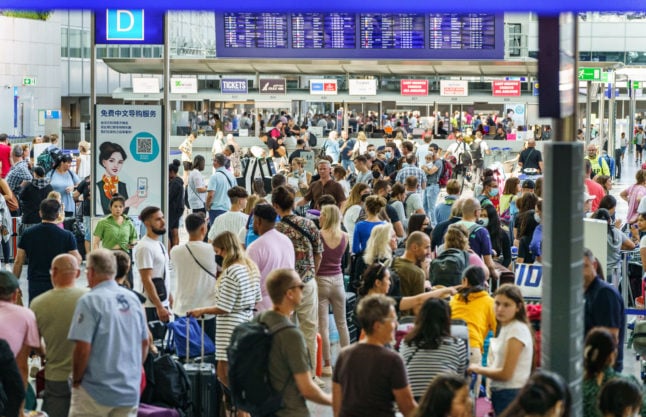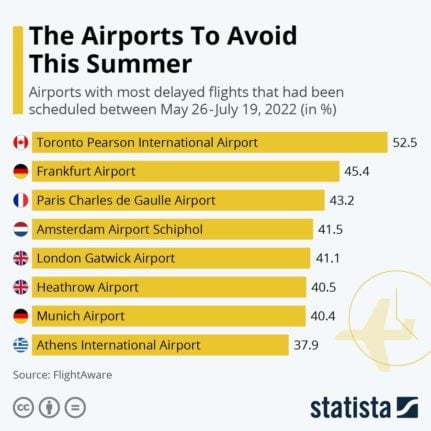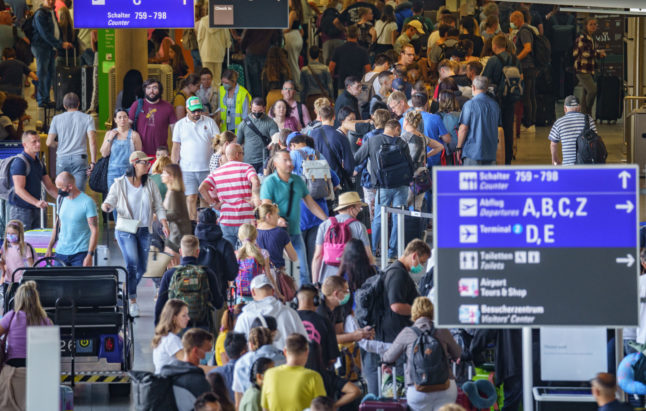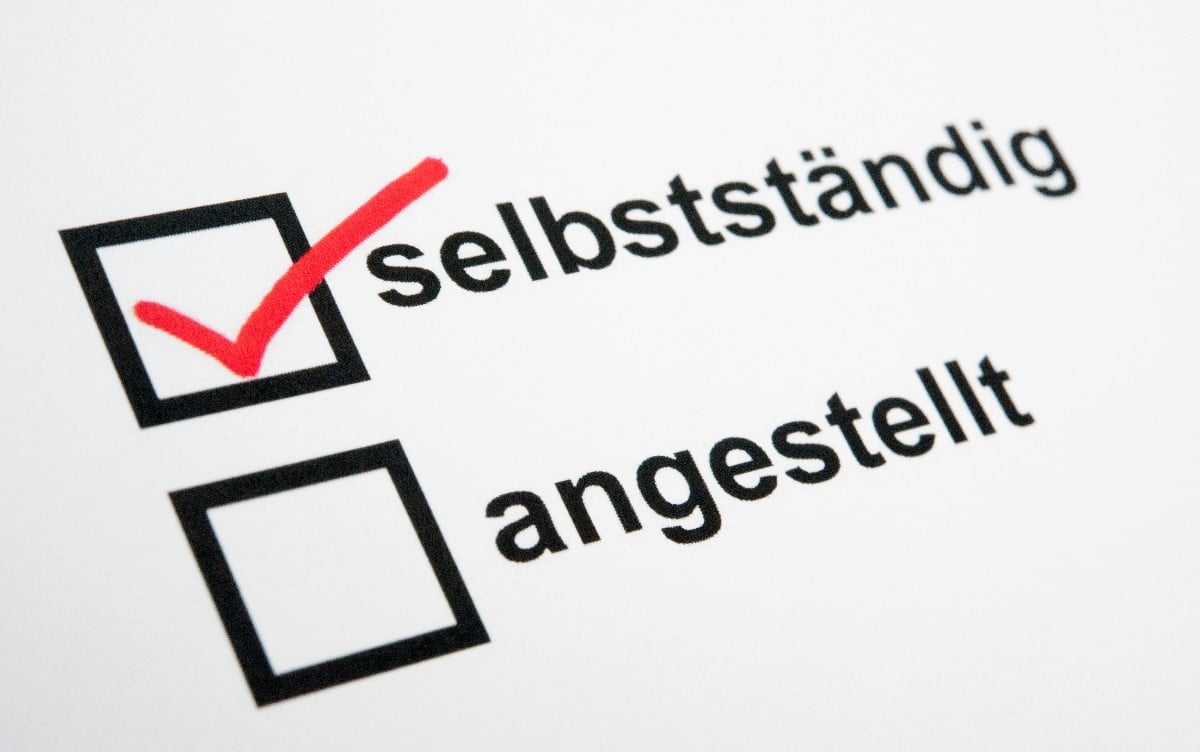It’s well known that flying can be a nightmare at the moment, whether there are delays, cancellations, long queues or lost luggage.
According to a recent ranking by FlightAware, Germany’s largest airport in Frankfurt saw 45.4 percent of its flights delayed between May 26th and July 19th, while Munich airport had 40.4 percent of flights disrupted.
We decided to ask The Local readers what their experience of flying to or from these airports has been this summer.
Around 30 people answered our survey last week – and of those, just over 32 percent said their flight from one of these two German airports had been cancelled. Meanwhile, 60.7 percent of those surveyed said their flight was delayed.
Missed connections
Frankfurt airport, which is airline giant Lufthansa’s main base, seemed to be the travel hub where people had experienced the most problems.
The airline has struggled with staff shortages after cutting back its workforce during the pandemic travel restrictions. Around 6,000 flights have been cancelled from Frankfurt this summer. Lufthansa ground crew staff also recently held a strike over pay and conditions.
Adding to the problem is that many people are off sick in Germany at the moment due to a high number of Covid infections.
READ ALSO: Why is flying in Germany so expensive and chaotic right now?
Alison Townsend, 49, said: “No problems at Munich but major problems outwards at Frankfurt. Only a 30 minute delay but then hit the 45 minute non-EU passport queue and ridiculous distance between gates.
“I missed my connection so missed boarding my cruise in Athens and had a five-day catch-up to board it after with high hotel costs and expenses. Staffing levels were ok but lines for border control were too long.”
However, Townsend said both airports were “very good in terms of seating and shops plus food outlets”.
Craig, 68, who flew to and from Frankfurt, said: “It was chaos and clueless. No Lufthansa desks were open. And it was the third flight of my scheduled trip to be cancelled.”

Nicolas, 37, flew to Marseille from Frankfurt, and said there were no staff there to tell passengers about their cancelled flight.
“You feel very lonely in the big airport,” he said. “No one knew the right answer. I travel a lot around the world and I never felt that before.”
Another reader called Anna, 33, said she was put off from flying with Lufthansa after having her travel plans wrecked during recent strike action. Her outbound flight was delayed by 2.5 hours “and I missed the connecting flight”.
“Due to the strike I was left all alone in Munich with a toddler,” she said.
Tom Boon said he experienced lots of problems when flying with Lufthansa from or to Frankfurt. He said his return Lufthansa flight from London was “almost an hour late due to the aircraft not leaving Frankfurt on time to come to collect us in London City”.
Long queues at immigration
Lots of respondents mentioned the issue of waiting in line when arriving at Frankfurt airport.
Balakrishnan, 41, who flew to Frankfurt from Abu Dhabi in July, said there were problems getting through passport control: “We waited nearly two hours in a long queue to clear immigration.
“Though the queue was too much, only two counters with four immigration officers were opened for non-EU passport holders.”
Paul, 52, flew to Frankfurt Airport at the end of July. He said: “Horrible queues for passport control, two people were there at 7.30am and there were queues of at least 200 people, stretching out of sight down the corridor.”

Will the problems continue?
At the weekend, Lufthansa board member Christina Foerster told newspapers in the Funke Media group that flight operations were now “stabilised”.
“The low point has passed,” she said. However, Foerster said there were still major issues with staff having to take sick leave.
Last week it also emerged that hundreds of new temporary employees from abroad, likely to be stationed at Munich, Frankfurt and Nuremberg airports, are set to join teams on the ground later this month.
READ ALSO: German airports to recruit hundreds of emergency staff ‘in August’
And some readers said it’s not all that bad – even with the current staff shortages.
Rebecca, 70, flew to Frankfurt airport on July 28th.
She said: “Flight arrived early. There was no line at passport control. Baggage arrived on the belt within 30 minutes. Shuttle to Terminal 1 was punctual.”
Steven, 35, said: “Munich had no issues at all, the airport was practically empty around 3pm. No baggage delays, customs did take a few minutes longer than usual. No other problems at all.”
Meanwhile, one reader said his worst experience was actually flying from another German airport – Cologne/Bonn.
Angad, 28, said: “Security lines that were kilometres long and more than a two hour delayed flight. Fast track security that we paid for did not exist. Horrible, horrible experience.”
Tips and advice
We also asked readers for their suggestions on travelling at the moment. Here’s a summary of what they said:
- Put a tracking device like an AirTag in checked baggage or only bring hand luggage
- Arrive earlier than usual for your flight, and be mindful of leaving time for connecting flights
- Wear trainers or comfortable shoes for getting through big airports quickly
- Lower your expectations
Nick, 56, said: “Remain calm, other airports in the world are also going through the same issues.”
Another reader, Fiona, 54, said: “Don’t travel unless you really need to.”
Thank you to everyone who took the time to fill out our survey. Although we can’t include all the responses, we do read all of them and really appreciate you taking the time to share your views with us.





 Please whitelist us to continue reading.
Please whitelist us to continue reading.
Member comments